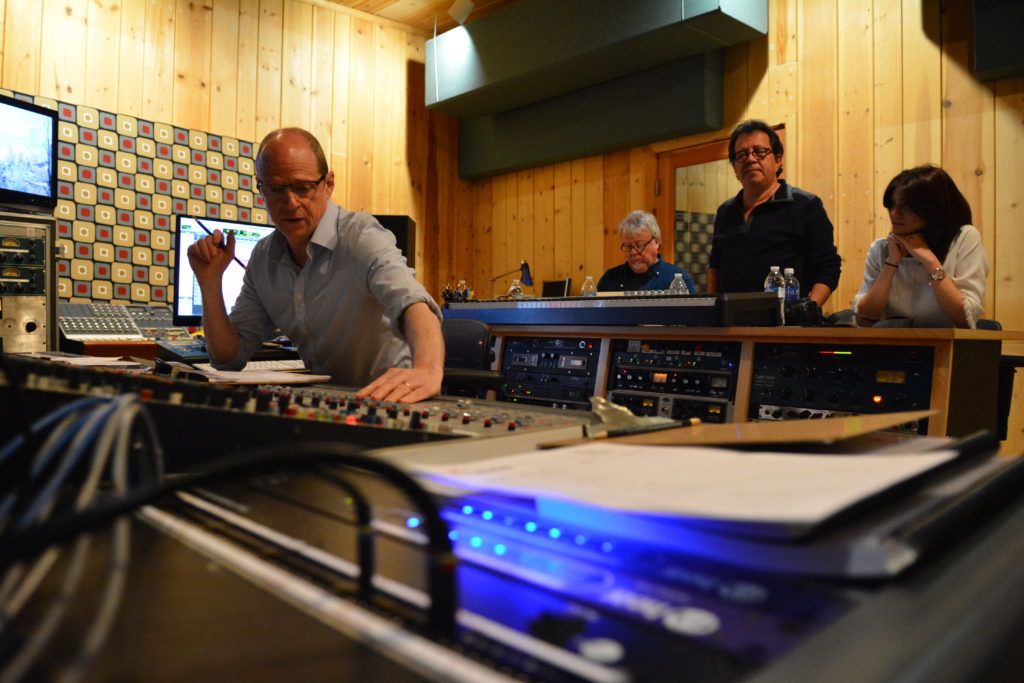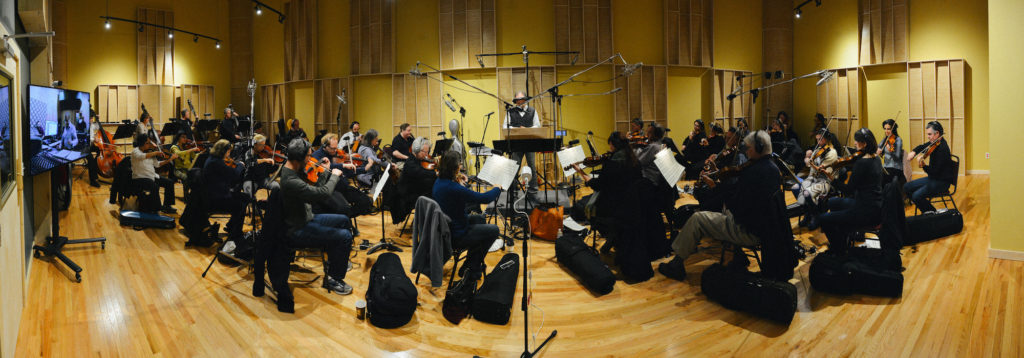 This month we spoke with producer and engineer Dan Rudin, check out the interview below. You can learn more about Dan here.
This month we spoke with producer and engineer Dan Rudin, check out the interview below. You can learn more about Dan here.
RS: For those that don’t know, who is Dan Rudin?
DR: I am a music producer and engineer. I have a long history of making artist records in rock, pop and jazz, but as a trained musician and composer myself, I have a special focus on scoring and working with large ensembles. As orchestral recording and mixing has become such a large percentage of my work, we’ve branched into contracting services here as well.
RS:Could you describe your recording set up?
DR: Well, I am very fortunate in that I have a dream setup here at my studio (as well as a dream team of people.) In my main control room (Studio A) I have a 60 input Neve V series console, as well as a few small side car Neve and Chilton consoles and lots of other outboard gear. I have a 48 i/o Pro Tools rig (with logic as well) and a 2” Studer tape machine for recording. I use Blue Sky monitors for both stereo and 5.1.
Studio A has 5 recording spaces, the largest easily hold 50 string players (which is my next session!) And for instruments I have a Yamaha C-6 piano, 70’s B-3, lots of old epno’s and synths, vintage Ludwig and modern Pearl drum kits, and a bunch of guitars and amps. I use VEP to access virtual instrument servers from all four of our control rooms as well.
I admit that I have an addiction problem acquiring gear so I won’t EVEN do a mic list.
RS: What are some recent projects you’ve worked on?
Well, in gaming I recently completed some mixing for a new Bandai Namco release (not yet public) and I just finished a new recording of Les Miserables for Cameron Macintosh which I produced with a studio orchestra and cast here in Nashville. That was really challenging but so fun to get to really digest such a great score. I’ve also done some huge orchestral scores for Disney Parks this year, parades, fireworks shows, etc. Disney jobs always involve great teams of composers and orchestrators, so I always look forward to those projects.
RS: Do you find there’s any big differences working on video games from the other projects you work on?
DR: Yes, certainly. The number of assets can certainly be intimidating. And interactive and adaptive scores require special attention to detail when planning, recording and mixing layers. Something as simple as a walk down in the bass or an 8th note push that in a basic track or underliner might feel completely fine on it’s own but wreak havoc against another layer or two (or 3!), especially annoying when looped.
RS: What attracted you to working on video games?
DR: I’ve always loved playing video games. They came along at a very formative age for me; I think I played my first Space Invaders at age 8 or 9. I spent a lot of quarters in arcades and actually won season’s Red Sox tickets playing Donkey Kong (S.E. Massachusetts Champ, baby!)
When I first heard Marty O’Donnell’s score to Halo come out of an Xbox I was hooked. Two things I love, great music from a live orchestra and great gaming together in one place? Sign me up. Then I heard Morrowind… that was the coffin nail 🙂
And frankly, most of the folks I’ve met working in game audio today are just incredible; both in terms or talent and character. It’s a great community and I’m happy to play a small role in it.
 RS: Do you have any advice for those looking to get into mixing for video games?
RS: Do you have any advice for those looking to get into mixing for video games?
DR: Well, I think that, for me at least, having an understanding of the end use helps me make better choices. You should always ask about release platforms. Certainly mobile can have some limitations in frequency range, so you might be sure that that cool acoustic bass has plenty of information that can be heard above phone speaker roll-off.
Understanding implementation and middleware may not be required to do great mixing for games, but again, it can help you make intelligent panning or stem routing choices that make life easier for the rest of the audio team… without them having to ask.
RS: Do you have any advice for mixing, recording and producing for composers and sound designers? Are there any common mistakes you often hear?
DR: If anything, I’d say that the biggest stumbling block I see for newer composers is in translating music from the DAW to the page for live players and preparing excellent tempo maps for recording sessions. I know there have been some GDC talks about this, but these things are so important to the success of your recording session that it can be money in the bank to seek out and hire professional help… especially if you’re less experienced in live recording.
And if you are sending cues off to be mixed, it’s best to send consolidated audio files rather than DAW sessions. And never assume that someone has the same plugin as you… no matter how cool it is!
